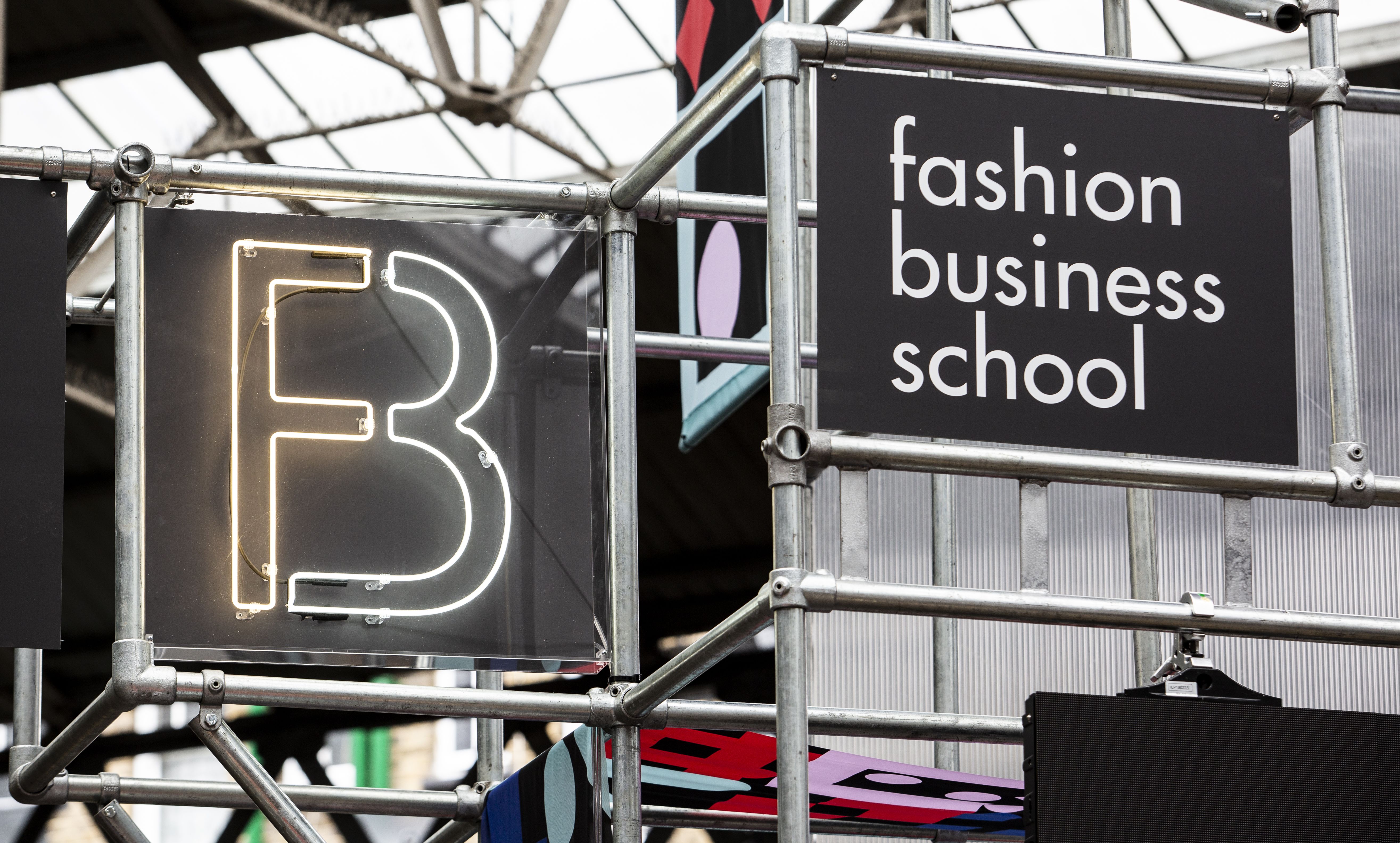
Fashion and Activism: In conversation with LCF graduates during Fashion Revolution Week

- Written byJ Igiri
- Published date 28 April 2022

Fashion Revolution Week scrutinises and celebrates the global fashion scene through seven days of activism, aiming to reimagine a just and equitable fashion system for people and the planet. This year Fashion Revolution Week (FRW) coincides with Earth Day, an annual, global response to the climate crisis across all industries and spheres of influence.
Sustainable and responsible practices factor into every course at London College of Fashion, and the ethos is carried forward by our graduates working as change-makers within fashion business, design and communication. LCF interviewed two MA Innovative Fashion Production graduates – Victoria and Sandrine – to find out how they are incorporating sustainability within their projects, as well as their response to the annual FRW campaign for change.

Sandrine Schafer is a womenswear product developer with five years’ experience working within the fashion industry. Sandrine's work focuses on researching sustainability and critically evaluating the implementation of responsible product development methods within established fashion brands and their existing supply chains.

Victoria Ponieman is a design researcher with a background in fashion and psychology. Her work currently focuses on innovation and systems for sustainability, re-evaluating how material value is currently conceived, and how current practices can be shifted towards more circular journeys.
Why is Fashion Revolution Week an important thing to recognise?
SANDRINE: Fashion Revolution Week is an impactful movement, as it unpacks the fashion system and opens up important topics that urgently need to be shared and addressed.
VICTORIA: I think recognising Fashion Revolution Week is acknowledging we still have a long way to go to become a better industry. The fact it happens around the anniversary of the Rana Plaza acts as a reminder of how fundamental it is for all individuals involved across the supply chain to work in safe and respectable environments.
How did you bring the conversation of sustainability into your work on the MA Innovative Fashion Production course?

SANDRINE: My research was focused on evaluating the implementation of responsible product development methods within established fashion brands and their existing supply chains. I collaborated with a London-based fashion brand, working closely together with their existing manufacturing suppliers to explore how responsible product development methods could be better achieved.

VICTORIA: The MA project focused on fostering circularity for Small and Medium sized Enterprises (SMEs). It proposed a system for the recovery and reutilisation of materials, and presented a service provider model which unlocks access to innovation and infrastructure for brands/companies through the removal of entry barriers such as high capital and human investments.
More specifically, I researched how the use of a new material, a dissolving thread, could contribute to scale upcycling and automating disassembly, which is currently very labour intensive, and therefore costly. The process is scalable thanks to being energy and cost efficient, and makes upcycling more accessible to a wider market through a lower price.
How does the course facilitate and allow students to explore topics like these?
SANDRINE: The course deep dived into the importance of environmental sustainability. This was encouraged through interesting talks and conversations with sustainability leaders in the field, as well as extensive and thorough lectures on critical thought-provoking topics.
VICTORIA: The way the course is structured provides students with the opportunity to explore a vast range of innovations happening within the industry, and identify areas they want to focus on. Due to the nature of the research topics, the tutors focused on providing tailored feedback, resources, and connecting students with the right people in their respective fields, which I think is the best part.
I think it’s quite an interesting space where both faculty and students get to learn from each other!
What are you working on since leaving LCF?

SANDRINE: I have recently accepted a new job in design and product development for a Copenhagen-based fashion brand. Within the role, I plan on actioning the tools that I have learnt around responsibility, and continuously introducing responsible habits and solutions.

VICTORIA: After finishing the MA I supported a London based footwear designer for a few months, and have now moved into consulting. I am currently working on a piece exploring how to best enable and support SMEs in their transition to Net Zero (carbon neutrality), aiming to make it more accessible, relevant and achievable, no matter what stage of the journey they’re at.
What do you think are the top three simple things we can do in our personal lives to be more sustainable?
SANDRINE: Consume mindfully and less.
VICTORIA: These are really obvious answers but I think they really work: try to use the train/bike over car, eat veggies over meats, and in general, try to buy less but better!
- MA Innovative Fashion Production
- View upcoming Open Days at London College of Fashion
- Follow London College of Fashion on Instagram